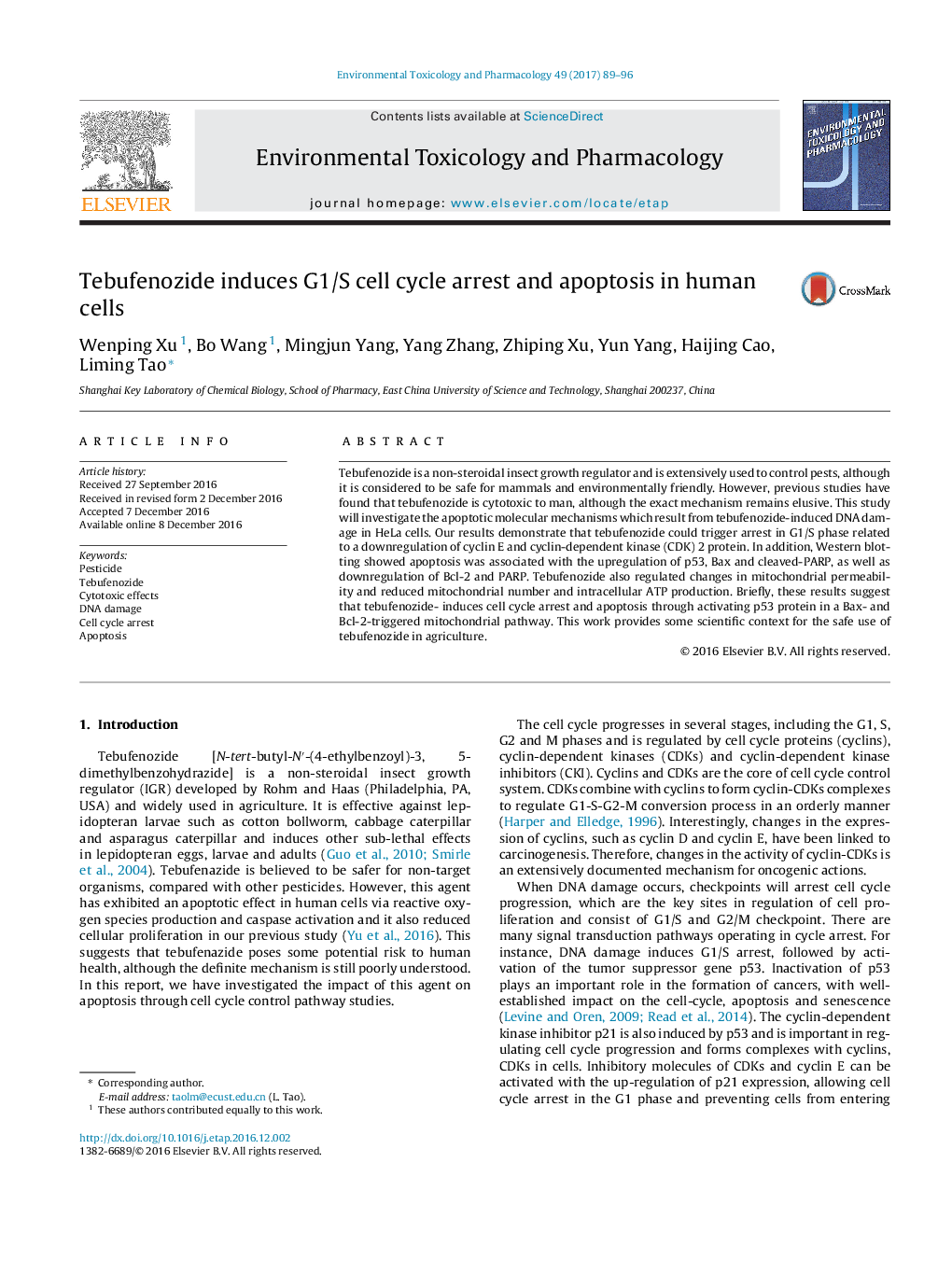| Article ID | Journal | Published Year | Pages | File Type |
|---|---|---|---|---|
| 5559867 | Environmental Toxicology and Pharmacology | 2017 | 8 Pages |
â¢Tebufenozide has potential threats to human health.â¢Tebufenozide induced cell cycle arrest and apoptosis in HeLa cells.â¢It provides a scientific theoretical basis for the safe use of tebufenozide on agricultural production.
Tebufenozide is a non-steroidal insect growth regulator and is extensively used to control pests, although it is considered to be safe for mammals and environmentally friendly. However, previous studies have found that tebufenozide is cytotoxic to man, although the exact mechanism remains elusive. This study will investigate the apoptotic molecular mechanisms which result from tebufenozide-induced DNA damage in HeLa cells. Our results demonstrate that tebufenozide could trigger arrest in G1/S phase related to a downregulation of cyclin E and cyclin-dependent kinase (CDK) 2 protein. In addition, Western blotting showed apoptosis was associated with the upregulation of p53, Bax and cleaved-PARP, as well as downregulation of Bcl-2 and PARP. Tebufenozide also regulated changes in mitochondrial permeability and reduced mitochondrial number and intracellular ATP production. Briefly, these results suggest that tebufenozide- induces cell cycle arrest and apoptosis through activating p53 protein in a Bax- and Bcl-2-triggered mitochondrial pathway. This work provides some scientific context for the safe use of tebufenozide in agriculture.
